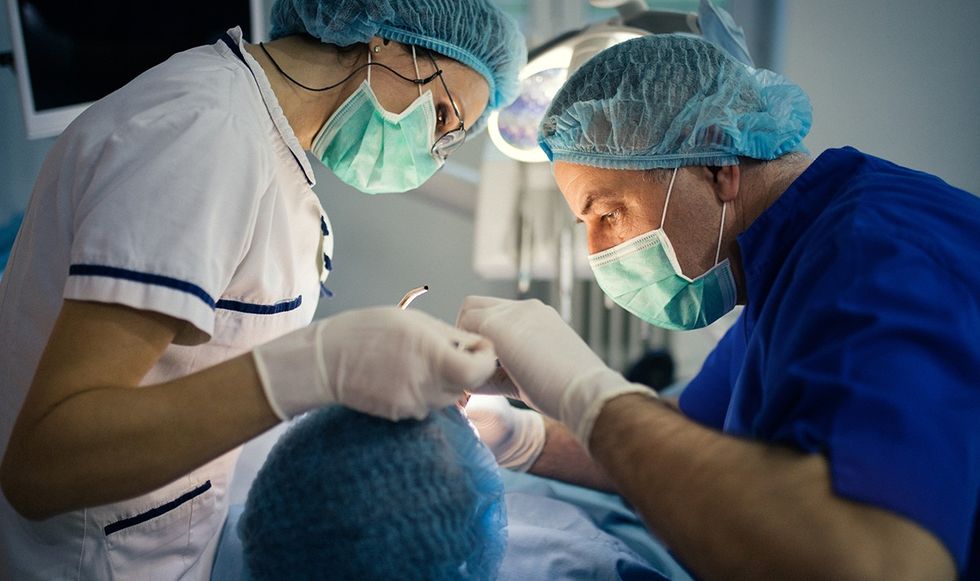Osteoporosis: Dentist warns against drinks that 'leach calcium from bones' amid 'bone death' concerns

A dentist has highlighted the pivotal role nutrition plays in osteoporosis prevention
Don't Miss
Most Read
Latest
Dental professionals are increasingly concerned about the serious complications that osteoporosis medications can cause in the jaw.
Sandip Sachar, warned that drugs like bisphosphonates and denosumab carry a risk of osteonecrosis of the jaw bone (ONJ), where bone tissue dies.
"Early prevention is critical, specifically because the medications used to treat it later on carry a risk of bone death of the jawbone," she told GB News.
Osteoporosis doesn't just affect the spine, hips and wrists - it also impacts the jawbone that supports teeth, which has serious implications for dental health, affecting periodontal stability and the long-term success of dental implants and other oral surgeries.

Osteoporosis impacts the jawbone that supports teeth
|GETTY
When bone density in the jaw decreases due to osteoporosis, patients face an increased risk of tooth loss and implant failure, undermining the very foundation that keeps teeth secure and healthy.
While the risk for osteoporosis patients remains low, it becomes more significant with intravenous forms, long-term use, or following oral surgeries. And when ONJ does occur, the consequences can be devastating.
To prevent such complications, Dr Sachar recommends focusing on dietary approaches that maintain bone density and offer a safer path forward.
Certain foods actively harm bone health, she warned. High-sodium processed foods increase calcium loss through urine, whilst excessive caffeine may reduce calcium absorption.
Fizzy drinks, particularly cola, contain high phosphate and caffeine that can "leach calcium from bones", Dr Sachar warned.
She explained that the foundation of strong bones begins with calcium, the primary mineral in bone structure.
Dairy products like milk, yoghurt and cheese provide excellent sources, while leafy greens, including kale, bok choy, and collard greens, offer plant-based alternatives.
Fortified foods such as plant-based milks, cereals and tofu, along with tinned sardines and salmon with bones, should feature regularly, with Dr Sachar recommending two to three servings of calcium-rich foods daily.
However, calcium alone isn't sufficient. Vitamin D enables calcium absorption from the gut, with fatty fish, egg yolks and fortified foods providing key sources.
LATEST DEVELOPMENTS

Women have a higher risk of osteoporosis
| GETTYDaily intake of 600-1000 IU is recommended, though supplements may prove necessary.
Magnesium supports calcium metabolism and vitamin D activation, with nuts, seeds, whole grains and legumes providing rich sources.
Protein remains vital for bone structure, with requirements of 0.8-1.5 grams per kilogram of body weight daily from lean meats, fish, dairy or plant-based sources.
As dental professionals emphasise, maintaining strong bones requires more than just calcium - it demands a comprehensive nutritional approach combining calcium-rich foods with adequate vitamin D, magnesium and protein at every meal.











